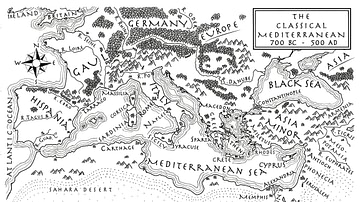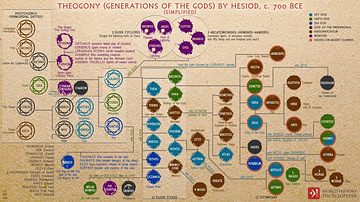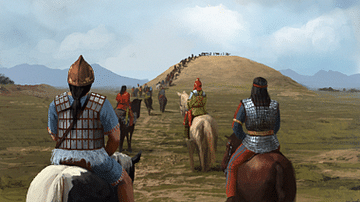Illustration
This map illustrates the westward expansion of the warrior-nomad Scythians between the 7th and 3rd century BCE across Asia and Europe. Originating in the Central Asian steppes, they spread into the Pontic region, shaping regional power dynamics through mobility, cavalry warfare, and a distinctive nomadic culture.
Their expansion was marked by mobility, skilled horsemanship, and a distinctive warrior culture centered on archery and mounted combat. As they migrated and settled, Scythian groups clashed with, traded with, and occasionally ruled over various peoples—from the Assyrians and Persians in the Near East to the Thracians and Greeks around the Black Sea. Archaeological finds, including kurgan burial mounds rich with gold artifacts, testify to their complex society and wide-ranging influence. Though eventually displaced by other nomadic groups such as the Sarmatians, the Scythians left a lasting imprint on the historical and mythological imagination of the ancient world.
Special thanks to Patrick Scott Smith for his research and input.
Special thanks to Patrick Scott Smith for his research and input.
About the Author
Cite This Work
APA Style
Netchev, S. (2021, June 30). Scythian Territorial Expanse, c. 700-300 BCE. World History Encyclopedia. Retrieved from https://www.worldhistory.org/image/14359/scythian-territorial-expanse-c-700-300-bce/
Chicago Style
Netchev, Simeon. "Scythian Territorial Expanse, c. 700-300 BCE." World History Encyclopedia. Last modified June 30, 2021. https://www.worldhistory.org/image/14359/scythian-territorial-expanse-c-700-300-bce/.
MLA Style
Netchev, Simeon. "Scythian Territorial Expanse, c. 700-300 BCE." World History Encyclopedia. World History Encyclopedia, 30 Jun 2021, https://www.worldhistory.org/image/14359/scythian-territorial-expanse-c-700-300-bce/. Web. 20 Apr 2025.








